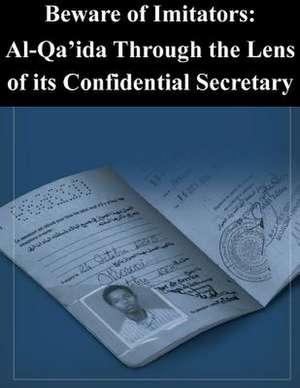Beware of Imitators
Autor The Combating Terrorism Center at West P.en Limba Engleză Paperback
Preț: 118.80 lei
Nou
Puncte Express: 178
Preț estimativ în valută:
22.73€ • 23.80$ • 18.81£
22.73€ • 23.80$ • 18.81£
Carte disponibilă
Livrare economică 15-29 martie
Preluare comenzi: 021 569.72.76
Specificații
ISBN-13: 9781500581701
ISBN-10: 1500581704
Pagini: 110
Dimensiuni: 216 x 279 x 6 mm
Greutate: 0.27 kg
Editura: CREATESPACE
ISBN-10: 1500581704
Pagini: 110
Dimensiuni: 216 x 279 x 6 mm
Greutate: 0.27 kg
Editura: CREATESPACE
